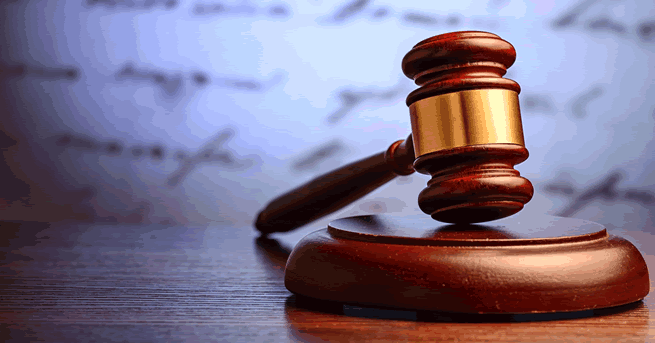Exactly How an Appeal Lawyer Can Assist Overturn Your Situation
Wiki Article
Introducing the Know-how and Jobs of an Appellate Legal Professional
In the detailed world of appellate regulation, the duty of an attorney takes on a distinctive kind requiring specialized skills and know-how. An appellate lawyer is entrusted with a myriad of responsibilities that go beyond the standard methods of lawsuits. From thoroughly crafting persuasive legal briefs to developing the art of oral campaigning for, their payments are essential fit the result of situations at the appellate level. As we explore the diverse world of appellate regulation, a more detailed exam of the important abilities and tasks of these specialists introduces a fascinating landscape that demands both precision and critical acumen to browse efficiently.The Function of an Appellate Lawyer
In the realm of appellate regulation, the duty of an appellate lawful professional is critical in browsing the complexities of greater court procedures and promoting for customers seeking appellate testimonial. Appellate lawyers specialize in managing instances on allure, where the emphasis shifts from truths and proof provided at test to lawful disagreements and procedural issues. Their main duty is to review test records, identify lawful errors, perform legal research, draft convincing briefs, and present oral arguments before appellate courts.Additionally, appellate lawful experts serve as strategic advisors to trial lawyers, guiding them on preserving lawful concerns for possible appeal and creating strong lawful arguments throughout the test process - post conviction lawyer. Additionally, appellate attorneys play a vital role in shaping the legislation by promoting for lawful concepts that can establish precedents impacting future instances.
Necessary Skills for Appellate Job
Efficiency in lawful evaluation and argumentation is fundamental for success in appellate work. Appellate attorneys should possess outstanding research abilities to explore situation law, statutes, and legal criteria to build influential legal arguments. They must have a deep understanding of procedural policies and court standards to navigate the intricacies of the appellate procedure properly. Composing skills are paramount, as appellate work requires composing clear, succinct, and compelling legal briefs that articulate intricate legal concerns persuasively. Attention to detail is vital in appellate job, as even minor mistakes can have considerable consequences on the outcome of a situation.Moreover, essential assuming abilities are essential for appellate attorneys to assess lawful approaches, anticipate counterarguments, and determine weak points in opposite guidance's positions. Strong dental advocacy skills are likewise crucial for offering disagreements persuasively during appellate hearings. Additionally, appellate experts need to be adept at teaming up with coworkers, getting and including feedback, and adjusting methods based upon judicial responses. In essence, an effective appellate lawyer possesses a distinct blend of logical, research study, writing, and campaigning for abilities to master the appellate field.
Crafting Persuasive Legal Briefs
Given the fundamental significance of phenomenal research skills and a deep understanding of procedural policies for success in appellate job, crafting convincing legal briefs stands as an important job for appellate lawful specialists. Legal briefs serve as the main tool for presenting arguments and lawful analysis to appellate courts - top appeal lawyer miami florida. To craft a convincing lawful brief, appellate experts must diligently structure their debates, cite relevant legal authority, and expect and respond to possible counterargumentsAppellate lawful experts must show a keen ability to boil down complicated lawful concepts into engaging and succinct debates that support their client's position. Grasping the art of crafting influential lawful briefs is vital for appellate legal experts looking for success in supporting Homepage for their clients before appellate courts.

Preparing for Dental Disagreements
An essential element of the appellate process includes comprehensive preparation for presenting oral disagreements on trial - post conviction lawyer. Getting ready for dental arguments calls for a thorough understanding of the instance, familiarity with legal precedents, and the ability to expect and react to concerns from the judges. Appellate attorneys must meticulously assess the record, recognize key legal concerns, and craft influential arguments to support their client's placementPrior to the oral argument, legal experts must involve in moot court works out to simulate the court experience and receive comments on their discussion. This method enables them to refine their arguments, improve their distribution, and boost their capability to deal with challenging questions successfully.

Navigating the Appeals Refine
Successfully browsing the charms process requires a calculated understanding of step-by-step policies and timelines within the appellate court system. The process typically begins with filing a notice of charm within a defined duration after a last judgment is gotten in at the test court degree (top tampa appeal lawyers). As soon as the notification of appeal is submitted, the applicant needs to after that set up the record on charm, that includes pertinent papers, records, and displays from the test court process

Throughout this procedure, appellate attorneys must stick to rigorous procedural rules and due dates to guarantee their arguments are listened to and taken into consideration by the appellate court. By grasping these ins and outs, legal specialists can efficiently browse the charms procedure and advocate for their clients' passions.
Conclusion
Finally, the experience and tasks of an appellate legal professional are important in navigating the complex charms procedure. With crucial abilities in crafting convincing lawful briefs and preparing for dental debates, these specialists play a vital function in promoting for customers in appellate court. By recognizing the subtleties of appellate work and possessing the required skills, appellate lawyers are equipped to successfully stand for clients in the charms procedure.In addition, appellate legal specialists offer as strategic experts to test lawyers, guiding them on maintaining legal concerns for prospective appeal and developing solid lawful debates throughout the test process. Appellate lawful professionals need to have phenomenal research abilities to dive into instance legislation, laws, and lawful precedents to build convincing lawful disagreements.Given the foundational value of phenomenal research study skills and a deep understanding of procedural regulations for success in appellate job, crafting persuasive lawful briefs stands as an essential task for appellate legal experts. Mastering the art of crafting influential legal briefs is important for appellate lawful professionals seeking success in promoting for their customers prior to appellate courts.
Appellate legal experts need to carefully evaluate the document, identify key lawful concerns, and craft persuasive debates to sustain their client's position.
Report this wiki page